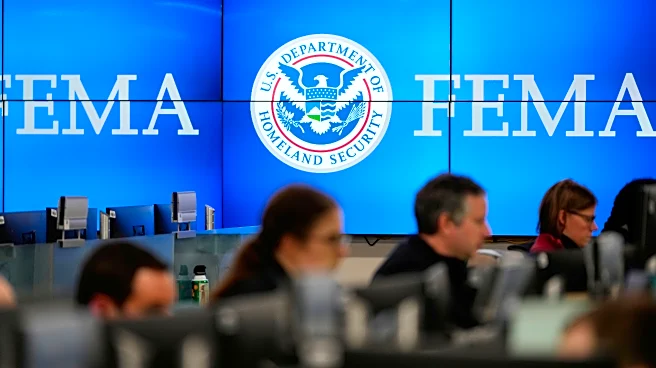What's Happening?
The Senate has successfully passed a bill aimed at funding the government, potentially ending the longest government shutdown in American history. The bill now moves to the House of Representatives, where
a vote could occur as early as Wednesday. This legislative action follows a period of intense negotiations and political maneuvering, with Speaker Mike Johnson holding a news conference to discuss the bill's advancement. The shutdown has had significant impacts on various government operations and services, prompting urgent calls for resolution.
Why It's Important?
The passage of the government funding bill is crucial as it seeks to resolve a prolonged shutdown that has disrupted federal operations and affected millions of Americans. Ending the shutdown would restore normalcy to government functions, including essential services and employee paychecks. The bill's progression also reflects the political dynamics in Congress, highlighting the challenges of bipartisan cooperation in addressing fiscal issues. Stakeholders such as federal employees, contractors, and citizens reliant on government services stand to benefit from the resolution of the shutdown.
What's Next?
The next step involves the House of Representatives voting on the bill. If passed, it would officially end the shutdown, allowing government operations to resume fully. Political leaders and stakeholders will likely continue discussions on long-term fiscal strategies to prevent future shutdowns. The outcome of the House vote will be closely watched, as it will determine the immediate future of government operations and potentially influence upcoming legislative priorities.
Beyond the Headlines
The shutdown has underscored the vulnerabilities in the U.S. political system regarding budgetary negotiations. It raises questions about the effectiveness of current legislative processes and the need for reforms to prevent similar occurrences. The situation also highlights the broader implications for public trust in government and the importance of stable governance in maintaining economic and social stability.











